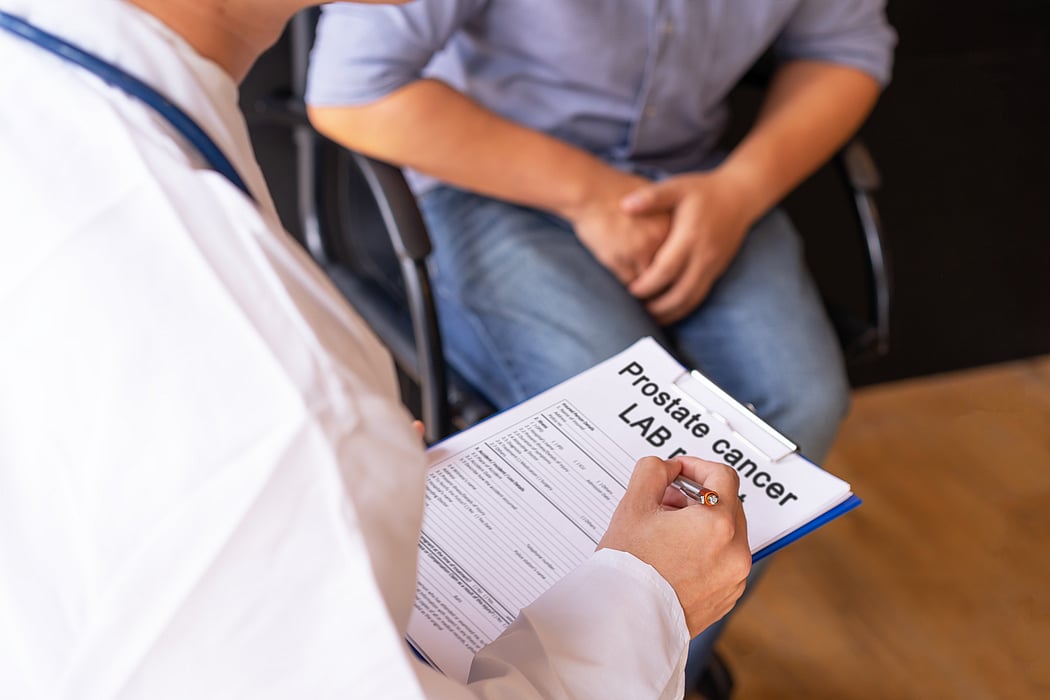What Is an Enlarged Prostate, and How Do You Treat It?

As you get older, more frequent health checks may be needed to help you stay ahead of illnesses.
For women, this might mean annual mammograms. For men, it means regular prostate exams, starting at age 45 or 50, to check for prostatitis. And while a prostate exam may not be most people's idea of a good time, it is important, because enlarged prostate, or benign prostatic hyperplasia (BPH), is very common.
What is benign prostatic hyperplasia (BPH)?
According to Yale Medicine, about 50% of men between 51 and 60 have BPH. And unfortunately, that number rises to 70% among men aged 60 to 69 and to around 80% of those over 70.
BPH refers to the enlargement of the prostate gland. The prostate, a small gland located below the bladder and around the urethra, produces a fluid that is part of semen. With age, the prostate cells multiply in response to the hormone dihydrotestosterone (DHT), causing the gland to grow. While BPH is noncancerous, the enlarged prostate can press against the urethra, obstructing urinary flow.
What causes BPH?
As if BPH is not nuisance enough, perhaps more frustrating is that the exact causes of BPH are not fully understood. According to Penn Medicine, BPH is influenced by factors associated with aging and changes in testicular cells, including testosterone levels.
It is notable that people who undergo testicle removal at an early age do not develop BPH, but more research is needed to examine this link.
BPH symptoms
Recognizing benign prostatic hyperplasia symptoms is crucial for early detection and effective management. As the prostate gland enlarges, it can exert pressure on the urethra, leading to a range of urinary symptoms that you should be aware of and monitor closely.
According to Dr. Michael S. Gomez, a board certified urologist at Saint Anthony Hospital in Chicago, the most common enlarged prostate symptom is “increased frequency and urgency voiding more than eight times in a 24-hour period. Another symptom is difficulty starting urination, causing hesitancy or a weak urinary stream with dribbling after voiding.”
Other common enlarged prostate symptoms include a feeling that the bladder is never fully empty and stopping and starting during urination.
BPH treatment
“The most common benign prostatic hyperplasia treatment is to start with fluid restriction, especially caffeine and alcohol. This is especially important at night," Gomez said. The Cleveland Clinic also suggests avoiding dairy, red meat and sodium (salt) whenever possible. Many health professionals will also recommend adding to your diet:
- Fruits, especially berries and citrus
- Vegetables, especially tomatoes and broccoli
- Healthy fats like those from olive oil, nuts, avocados and oily fish
- Turmeric
“Then we generally will start the patient on BPH medications to either open the prostate channel or shrink the prostate," said Gomez. "Multiple in-office treatment options exist for BPH before formal surgeries."
Benign prostatic hyperplasia medications are intended to relax the muscle in your prostate. In some cases, medications are prescribed to decrease DHT production, which may slow the growth of the prostate gland. Benign prostatic hyperplasia symptoms tend to improve about one to eight weeks after starting medication.
The Cleveland Clinic states that surgical procedures are also available to address the obstruction caused by prostate tissue blocking the urethra. These include:
- Transurethral resection of the prostate (TURP), where a resectoscope is used to visualize and remove prostate tissue through the urethra
- Transurethral incision of the prostate (TUIP), which uses small incisions to widen the urethra and improve urine flow
- Transurethral electrovaporization, in which heat converts enlarged prostate tissue cells into steam
- Laser treatment, where a specialized laser evaporates the enlarged prostate tissue
Living with BPH
The progression of BPH often intensifies with age, potentially resulting in bladder damage, urinary tract infections, hematuria (blood in the urine) and even kidney damage, according to the American Urological Association.
Gomez explained that “BPH and incomplete emptying of the bladder can result in a feeling of residual urine and the need to strain or push to initiate or maintain urination. The increased frequency and urgency can cause multiple episodes of nighttime voiding, affecting sleep and causing fatigue and tiredness during the day.
"Another condition is weak urine flow, with symptoms such as flow of urine may be weak, interrupted or stop-start. It's important to note that other conditions can also cause these symptoms, so it's recommended to consult with a health care professional for an accurate diagnosis and appropriate treatment," Gomez said.
Understanding and recognizing the symptoms of BPH is crucial for timely intervention and proper management. If you experience frequent urges to urinate, multiple nighttime awakenings to urinate or notice blood in your urine or semen, seek medical attention promptly. As the U.S. National Institute on Aging recommends, consult your doctor immediately to ensure a timely diagnosis and appropriate BPH treatment.
Don't delay -- take control of your prostate health today.
SOURCE: Michael S. Gomez, MD, urologist, Saint Anthony Hospital, Chicago
Related Posts
Addressing Social Needs May Cut Hospitalizations
THURSDAY, July 7, 2022 (HealthDay News) -- Interventions to address adult...
Tablet-Based Game Can Assess Pediatric Visual Motor Skills in Autism
FRIDAY, Feb. 24, 2023 (HealthDay News) -- A tablet-based game is feasible for...
Only Half of U.S. Nursing Home Residents Have Received Boosters: CDC
TUESDAY, Dec. 14, 2021 (HealthDay News) -- As COVID-19 cases surge nationwide,...
New Type of Treatment Tackles Tough-to-Treat Prostate Cancer
THURSDAY, July 13, 2023 (HealthDay News) -- A preclinical study offers a...
